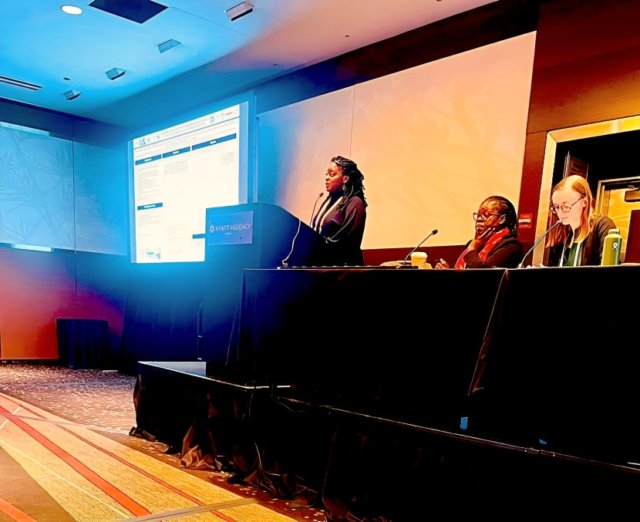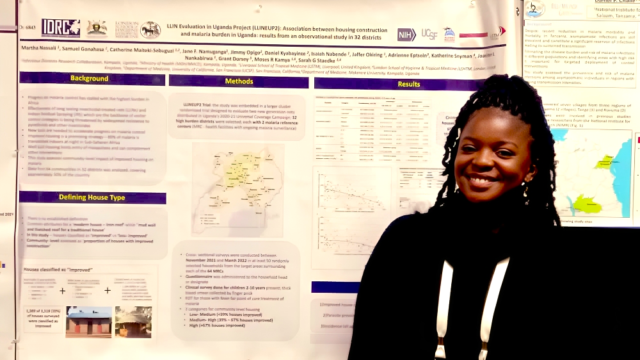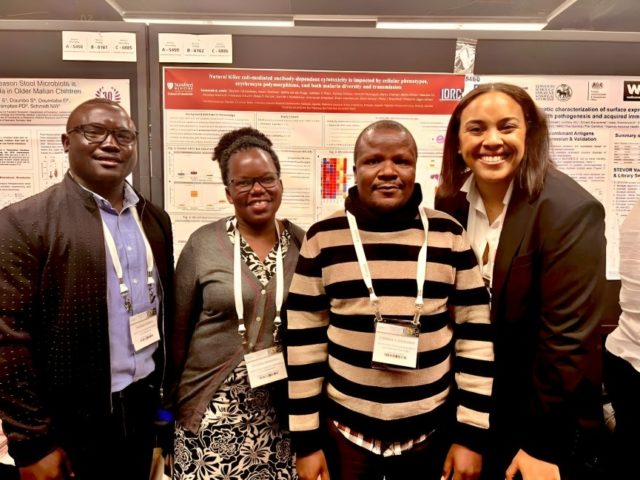The recently concluded American Society of Tropical Medicine & Hygiene Annual Meeting witnessed researchers, government representatives, non-government organisations, and academic institutions gather to discuss ground-breaking developments in tropical medicine, infectious diseases, and global health.
One of the notable contributors to the conference was the Infectious Diseases Research Collaboration (IDRC) team. Through their presentations, Dr. Martha Nassali and her team shed light on various findings and advancements in malaria research.
Speaking about the significance of the annual meeting, Dr Nassali said, “A key takeaway is that the efforts (specifically for malaria control) are global. There is an opportunity to learn from each other and leverage different knowledge and skill sets to perform high-quality research and advance the science.”
One of the presentations from the team, the Long Lasting Insecticidal Net Evaluation in Uganda Project (LLINEUP2), examined the impact of two types of insecticide-treated bed nets distributed during the Uganda Ministry of Health’s national mass distribution campaign. The study concluded that both types of nets, the PBO Net and the Royal Guard Net, were equally effective in high-resistance areas, showcasing an important advancement in malaria prevention strategies.

Furthermore, the researchers explored the association between housing construction and malaria burden, revealing that improved housing exhibited a protective effect at both the individual and community levels. This finding emphasises the significance of holistic approaches to malaria control, combining bed nets with housing improvements.
“Our study revealed that implementing a combination of mosquito control measures such as insecticide-treated bed nets, indoor residual spraying, and larval source management can significantly reduce the incidence of diseases like malaria. We found that involving local communities in disease prevention and control strategies improves program effectiveness and sustainability,” she asserted. “By empowering communities and fostering ownership, we can achieve long-lasting positive outcomes.”
Dr Nassali also expressed interest in some of the studies presented at the meeting that focused on testing alternative vector control strategies, such as spatial repellents and attractive toxic sugar baits, aiming to enhance malaria control initiatives further. Collaboration with other organisations involved in these studies can pave the way for innovative solutions and better outcomes.

When asked about the benefits of participating in the conference, Dr. Nassali emphasised the value of networking and collaboration. “The annual meeting provided a platform for IDRC to connect with like-minded individuals and institutions working towards the same goal of combating malaria. Multiple networking events provided opportunities to forge partnerships and gain crucial insights into ongoing research.”, she stated.
While Dr. Nassali identified challenges in coordinating with colleagues throughout the conference, forming a WhatsApp group helped address the issue. However, she suggested that a meeting or team-building activity at the conference venue could strengthen internal collaboration and present a unified front on behalf of IDRC.
The IDRC team’s participation at the conference resulted in productive discussions and collaborations with representatives from the Ugandan government and organisations such as USAID. These partnerships will enhance the team’s ability to address the malaria burden effectively and contribute to improved health outcomes in affected regions.

Looking ahead, Dr Nassali revealed that the conference had prompted further scientific output from existing data, allowing for deeper exploration of local factors impacting malaria control and enhancing staff skills in data analysis and scientific writing.
Overall, the IDRC team’s presence and contributions at the American Society of Tropical Medicine & Hygiene Annual Meeting played a significant role in advancing malaria research and addressing health outcomes. Their ability to translate experimental studies into real-world settings garnered attention from potential collaborators and funders, ensuring continued progress in the field.
As the fight against malaria continues, IDRC remains committed to pushing the boundaries of knowledge and collaborating with stakeholders to make a lasting impact on the burden of this disease.
